The truth behind the pork we eat
Fuelled by the meat consumer's ever-growing demand for cheap pork, Lizzie Rivera reveals the shocking treatment of intensively reared pigs in the second instalment of our five-part series on food labelling
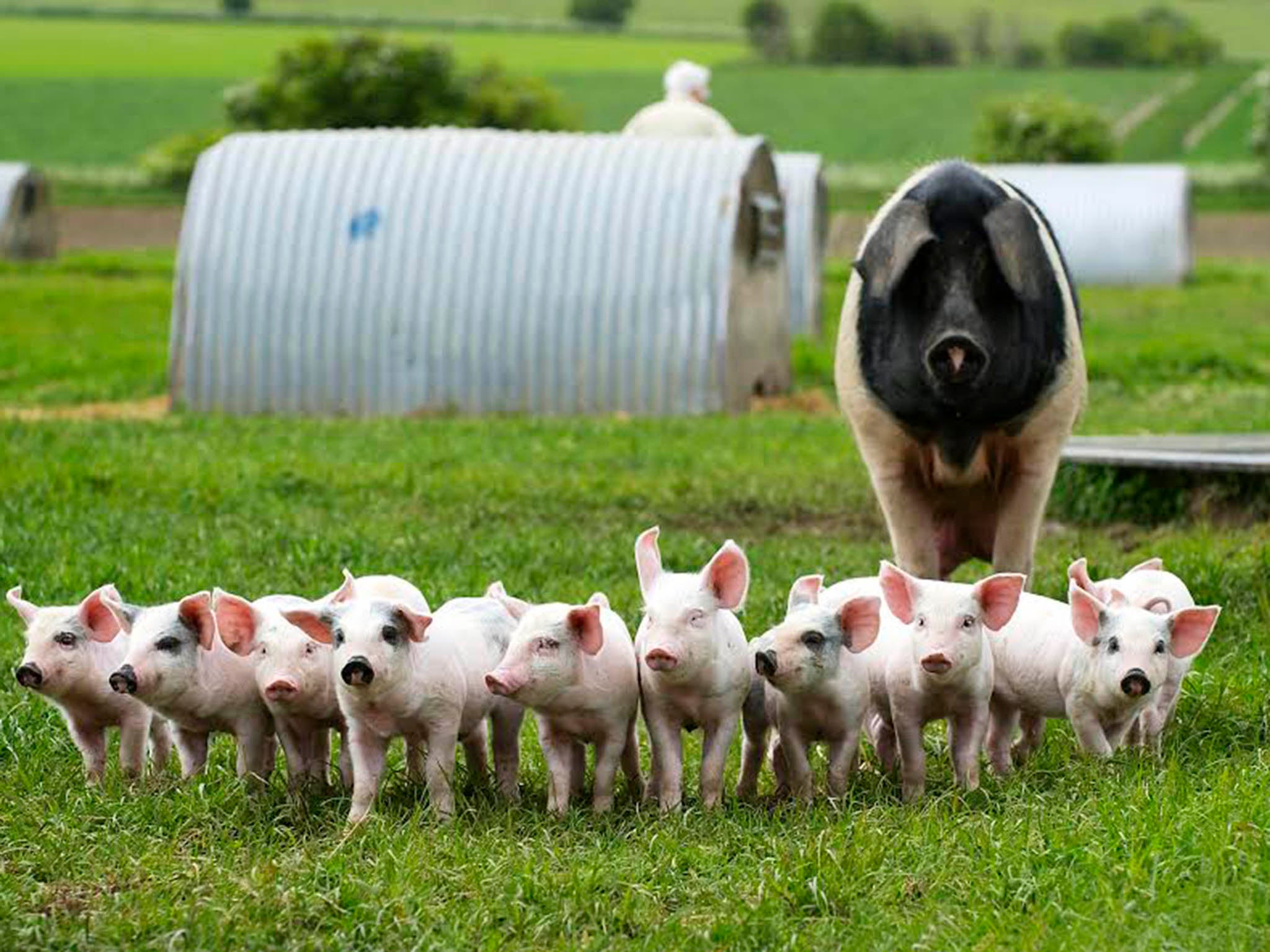
Your support helps us to tell the story
From reproductive rights to climate change to Big Tech, The Independent is on the ground when the story is developing. Whether it's investigating the financials of Elon Musk's pro-Trump PAC or producing our latest documentary, 'The A Word', which shines a light on the American women fighting for reproductive rights, we know how important it is to parse out the facts from the messaging.
At such a critical moment in US history, we need reporters on the ground. Your donation allows us to keep sending journalists to speak to both sides of the story.
The Independent is trusted by Americans across the entire political spectrum. And unlike many other quality news outlets, we choose not to lock Americans out of our reporting and analysis with paywalls. We believe quality journalism should be available to everyone, paid for by those who can afford it.
Your support makes all the difference.Sienna Miller and Mick Jagger were just two of the celebrities to turn their noses up at factory pig farming at a fundraising dinner hosted by Farms Not Factories last week.
It saw the the launch of a series of videos from celebrated chefs including Hugh-Fearnley Whittingstall, Mark Hix, and Tom Hunt encouraging consumers to buy higher welfare pork.
“I want to eat pork from pigs that have been reared outdoors, free to enjoy the rooting, snuffling and social interaction that are so essential to them.
"In fact, that’s the only pork I’m prepared to eat,” says Hugh Fearnley-Whittingstall.
“The alternative – intensively reared, antibiotic-laden meat from stressed animals confined in high numbers in cramped indoor conditions – is simply not acceptable.”
Pigs are very sociable animals and will happily spend their days grazing or rooting the ground with their sensitive snouts, or wallowing in the mud to cool down.
However, most of the 1.5 billion pigs slaughtered for meat worldwide each year don’t get that chance.
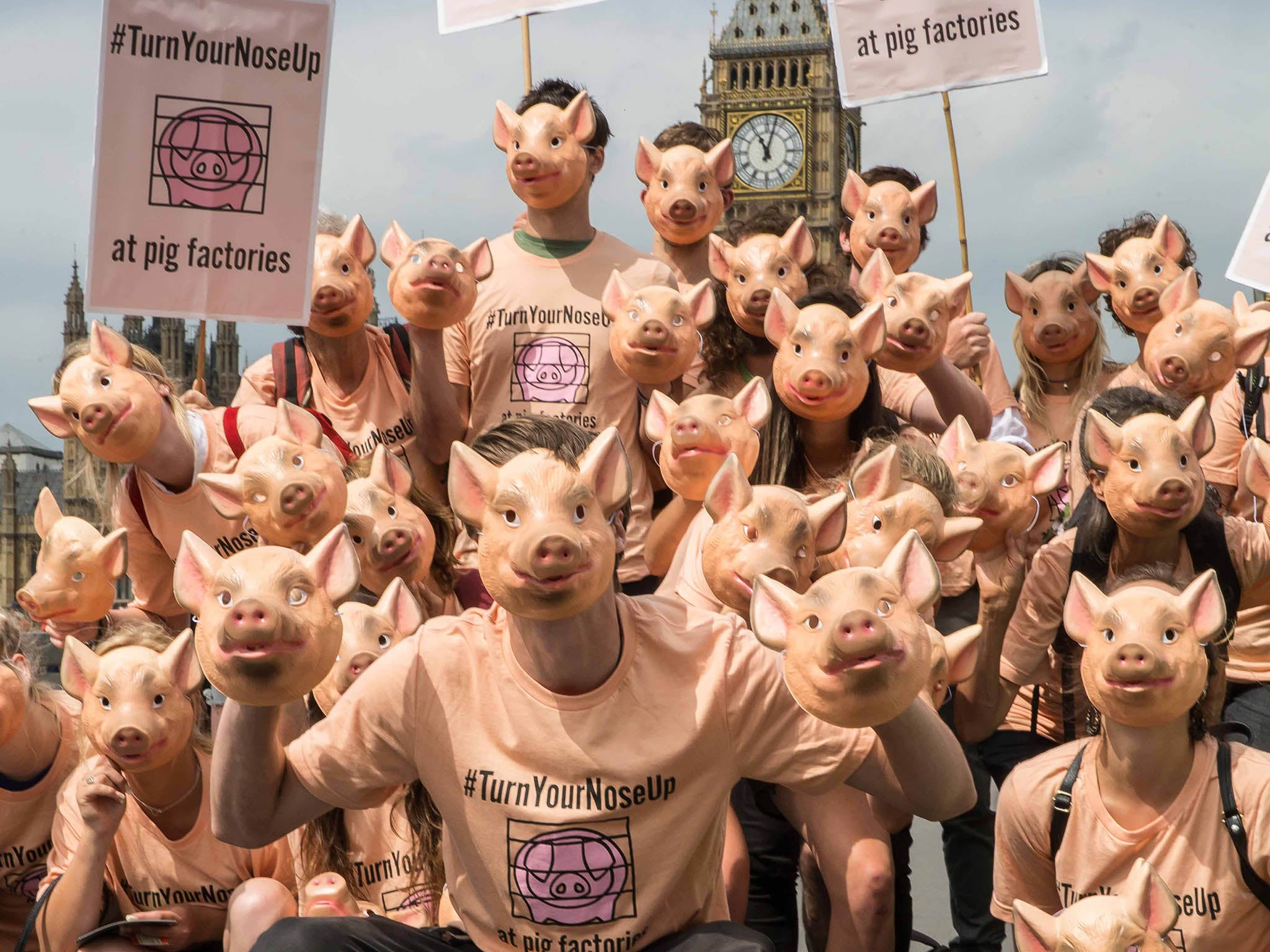
We farm a relatively modest 10.6 million pigs annually in the UK, but for the vast majority life looks nothing like the idyllic farms we have been brought up to imagine.
“In Britain, a nation of animal lovers, most of our pigs are in factory farms in conditions that in my view can only be described as utter depravation,” says Compassion in World Farming (CIWF) chief executive, Philip Lymbery.
Types of pigs and the role they play:
Boar: male pig after puberty, intended for breeding
Sow: female pig after giving birth to first set of piglets
Fattening pigs: fed intensive diets to maximise growth for slaughter
In intensive farming systems piglets are born to sows in farrowing crates, which are so small the sows can’t even turn around.
The piglets compete with one another for teats that aren’t providing enough milk for them all, so they have their teeth painfully clipped to minimise damage when fighting to suckle.
At three weeks old they are transferred to pens where they are fattened up on cereals and fed routine antibiotics because diseases spread quickly in tightly packed conditions and they haven’t fed from their mother for long enough to build up immunity.
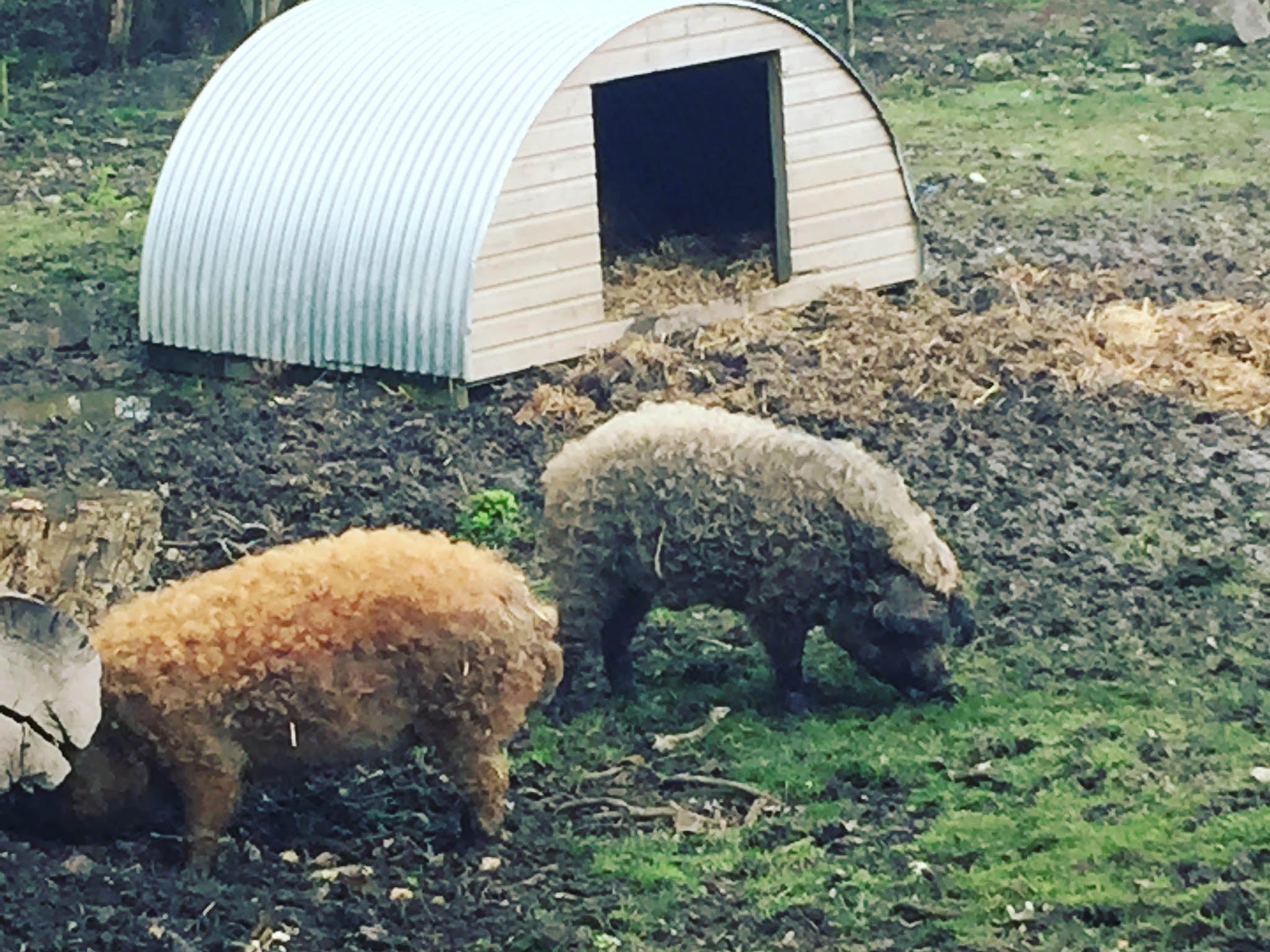
The growing pigs live on hard slatted floors so their excrement can conveniently be washed away conveniently.
Unstimulated, their tails will have already been docked (without anaesthetic if they were under seven days old) to stop them causing serious damage when they bite each other as boredom turns to aggression.
Tail docking is technically illegal.
The European Food Safety Authority (EFSA) reported that “the largest risk for being tail bitten is the lack of appropriate enrichment”, which can be rectified by giving pigs access to the likes of straw, hay, wood, and peat to root around in.
Truly great brands available to buy in the supermarket or from Ocado:
Helen Browning Organic
A farmer and campaigner for whom animal welfare is a top priority.
Daylesford
These farmers set the bar for organic and humane farming across the board.
Wicks Manor
A family run farm that takes care of its pigs from birth to slaughter.
However, a recent investigation by CIWF estimates that 81 per cent of UK piglets have their tails docked as mutilating them is a quicker and cheaper solution.
Bred to grow quickly and fed growth hormones they are ready for slaughter from five months old, twice as fast as higher welfare breeds. At the abattoir they are likely to be gassed in groups, because it’s efficient and cost saving.
“Gas is very aversive, it’s not pleasant at all,” says Marc Cooper, head of farm animals at RSPCA Assured. “We’re pushing for work on better gas killing systems that can use gases that are more humane.”
These are yet to be developed because of other priorities – namely producing more meat for cheaper cost.
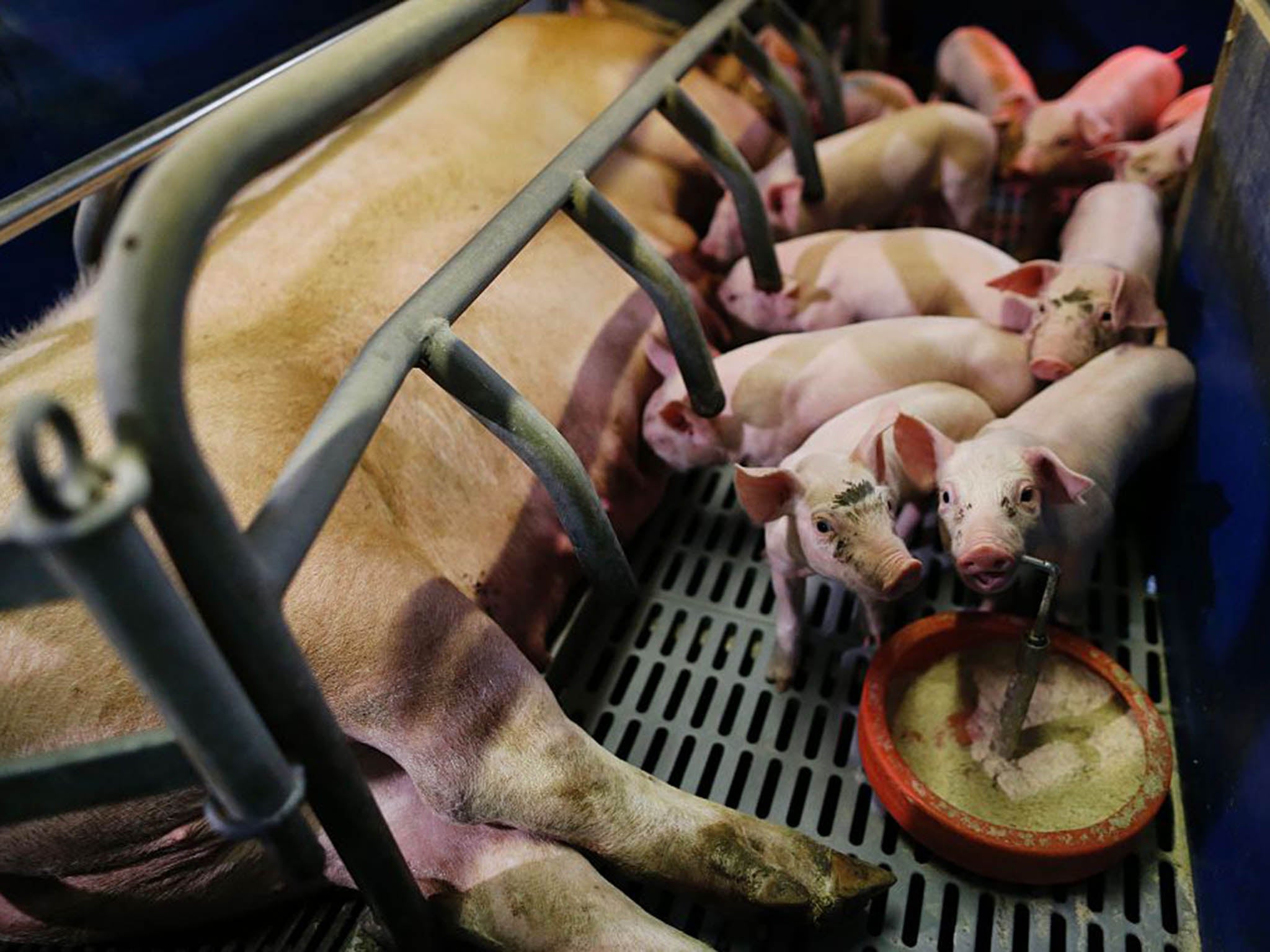
Pig factories, not farms: The importance of transparency
Farming is staggeringly big business. There are a handful of global players who control the majority of meat production across the world.
To put it into context, in 2013 American company Smithfield was the largest pork producer in the world when it was simply swallowed up for $4.7bn (£3.6bn) by Chinese Shuanghui International Holdings Ltd.
These companies spend huge amounts of money keeping the truth from consumers about how meat is really produced, and keeping them out of their factory ‘farms’.
In the UK, Red Tractor certifies 85 per cent of pig farms. On their website they have a profile of a farmer and cute, happy-looking pigs in the background.
It reads: “If animal welfare ever plays on your mind, you only need to watch this video to see how well cared for animals in the Red Tractor scheme really are.”
This is far from the truth for many of the pigs farmed in the UK. The latest figures suggest a third of pigs are – illegally – living in barren systems without straw, and half of sows are put into farrowing crates.
What the labels really mean (in order of welfare standards, highest to lowest):
UK Organic:
Generally, the highest level of welfare. Pigs are reared outdoors (but sows and boars may be reared indoors).
Soil Association organic bans nose ringing (used to prevent natural rooting behaviour), tail docking, farrowing crates and the use of routine antibiotics.
RSPCA Assured:
Doesn’t allow the use of farrowing crates and has stricter requirements for tooth clipping and tail-docking.
Free-range:
This is not a legal term when it comes to pigs, but should mean pigs are born and reared in outdoor systems. Tooth clipping and tail docking are permitted.
Outdoor reared:
Pigs are born and then reared in outdoor systems for around half their lives. The sows remain in the outdoor system throughout their life. Tooth clipping and tail docking are permitted.
Outdoor bred:
Pigs are born in outdoor systems, but raised in barns after weaning. The sows remain in the outdoor system throughout their life. Tooth clipping and tail docking are permitted.
Red Tractor:
Certifies 85 per cent of pig farms in the UK. Farrowing crates, tooth clipping and tail docking are permitted.
When I asked CEO of Red Tractor, David Clarke, what are the advantages of "outdoor bred pork" (which means the pigs are born outdoors and raised indoors) his reply was:
“The advantages are some people are prepared to pay more money for it because they think it’s better welfare.”
No wonder consumers are confused and don’t know what labels to trust.
British pork
I would love to be able to tell you to buy British because it's better. But the truth is that no matter how pretty the packaging, most of it is still not good enough.
In an investigation carried out by organic certification body Soil Association, 63 per cent of pork samples had antibiotic-resistant E.Coli – which is the most common cause of urinary-tract infections, dangerous blood poisoning, and can also cause meningitis.
Their report states that the routine dosing of animals on intensive farms raised in disease-inducing conditions is also an important contributor to this.
No new antibiotics have been discovered for treating E. coli for 35 years. As well as health concerns, the quality of intensively reared pork is significantly lower, too.
At another Farms Not Factories event hosted by Mark Hix on Monday, top chefs including James Golding from the Pig Hotels and Damian Clisby from Petersham Nurseries were disgusted by a taste test, commenting on how unnaturally wet and salty the pork from intensively reared pigs was, and how there was no flavour or substance to the fat.
For farmer Peter Greig from Pipers Farm the difference was clear: “That’s not a pig, that’s a genetic monster that’s lived in a shed all its life.”
The true cost
Greig explains his father was one of the pioneers of industrial farming but that he and his wife, Henri, turned their back on that system over 20 years ago when they were standing in a shed of 7,000 chickens and realised they wouldn’t be willing to feed any of them to their children.
“The myth that industrial farming is the only way to feed the population is absolute nonsense,” he says.
“We need to empower local food economies -– producing local food based on local resources, with the guidance from generations who have worked the land.”
Chef and Ted speaker Arthur Potts-Dawson agrees: “Cities are inherently unsustainable – a city's heartbeat is founded on food, people need to eat three times a day.
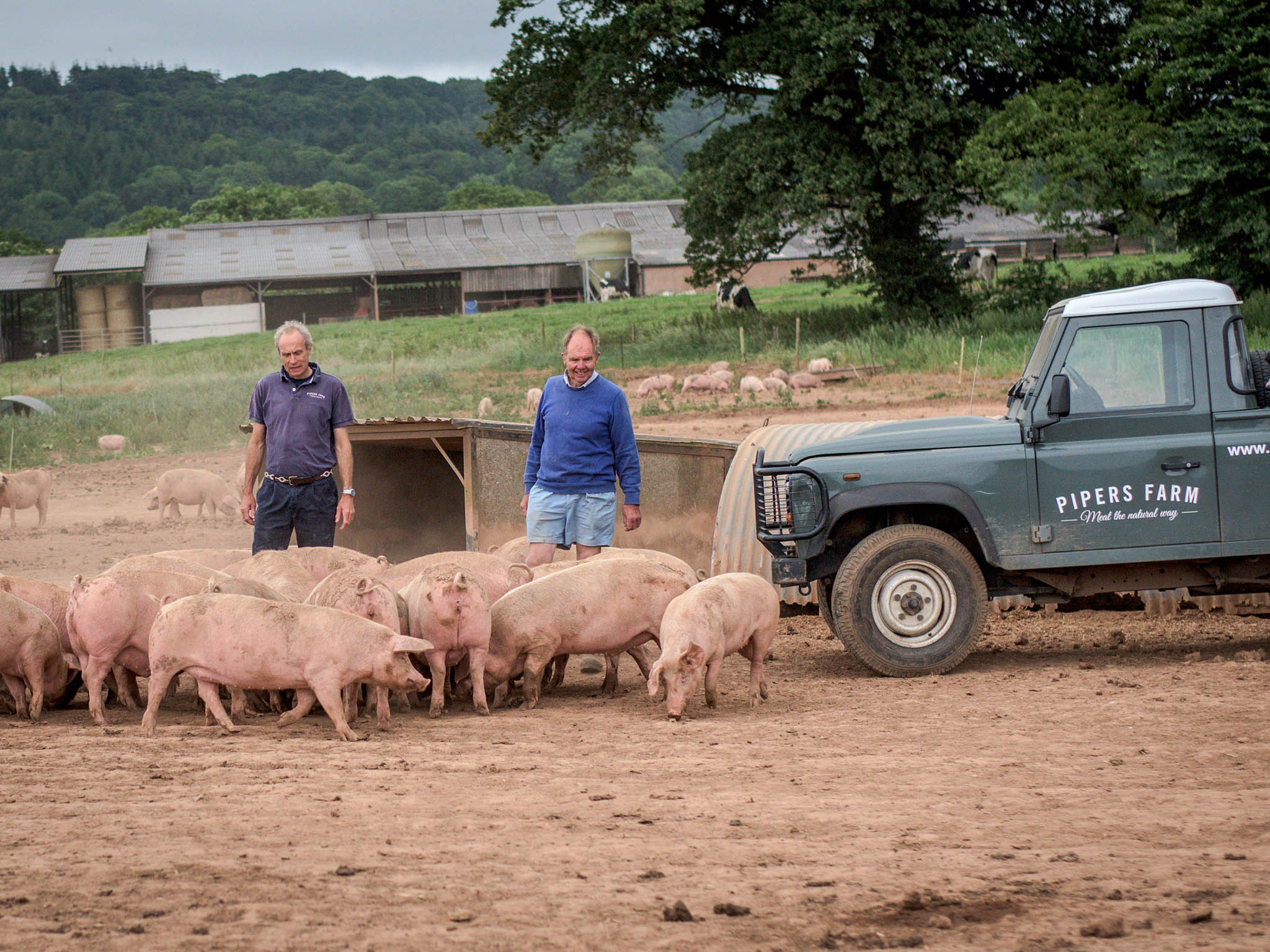
“It can’t exist without the rural population producing food so we can’t turn our backs on rural farmers by insisting on cheaper and cheaper prices.”
Currently, the only way to buy better in supermarkets is to look for the free-range, RSPCA assured or organic labels.
If you’re in the butchers, ask how for information on how the pig has been raised and slaughtered – and ask for advice on how to cook more unusual cuts, which are cheaper.
Of course, higher welfare brands are more expensive and this is a big barrier for financially stretched consumers who would otherwise be willing to buy better meat.
The question to ask is "what’s the true cost of that bacon?" – when you consider not just animal welfare but also the quality of what you’re feeding yourself and your family.
If the truth about farming practices were to be made clear, my guess is suddenly the advice to eat meat less often so we can afford to eat better quality wouldn't seem unreasonable. It would seem necessary.
Lizzie Rivera is the author of ethical lifestyle website bicbim.co.uk
Join our commenting forum
Join thought-provoking conversations, follow other Independent readers and see their replies
Comments